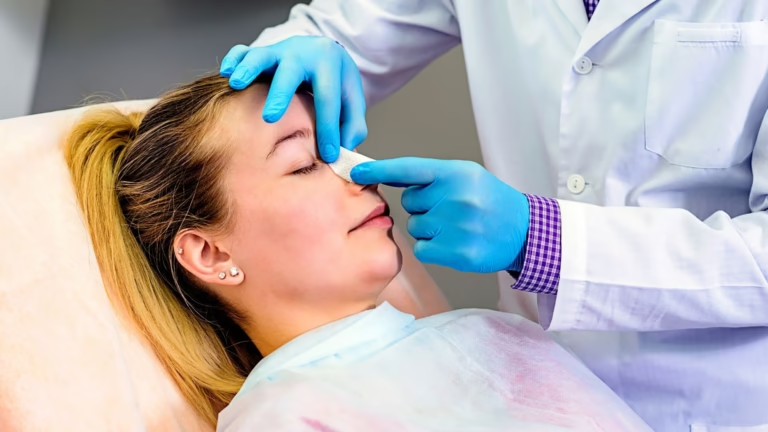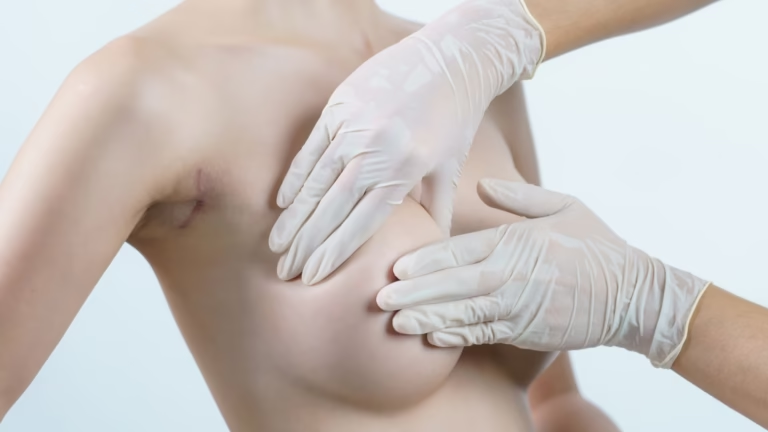
What to Expect Why Post-Op Care Matters Liposuction
- On
- InPlastic Surgery
Thinking liposuction ends in the operating room? Think again.
The real transformation happens in the weeks following your procedure—and how you care for your body during this time makes all the difference.
In this comprehensive guide, we’ll walk you through what to expect after liposuction, critical do’s and don’ts, and why post-operative care like compression garments, nutrition, and lymphatic massage are essential for stunning, long-term results.
The First 10 Days: Why Rest Isn’t Optional
“How soon can I get back to normal?”
This is the #1 question we hear from patients after liposuction. The answer? It depends on your procedure—but typically, the first 7 to 10 days are crucial for healing.
If your liposuction was done under general anesthesia or involved multiple body areas, you’ll need more time to recover. Fat removal causes trauma to tissue, and your body needs rest to reduce inflammation and begin repairing itself.
Pro tip: Don’t rush it. Pushing your body too soon can delay healing and compromise your results.
Salt: The Sneaky Saboteur in Your Recovery
Here’s something we stress to every patient:
Sodium can slow down your healing.
That’s right—too much salt causes the body to retain fluid, which increases swelling and can obscure your results.
Instead, we recommend:
Strict salt limitation, especially in the first few weeks
Replacing refined table salt with natural mineral or Himalayan pink salt
Watching for hidden sodium in packaged and restaurant foods
Did you know? Excess salt can prolong swelling by weeks. Being mindful here speeds up your body contouring results significantly.
Hydration: More Than Just Water
Especially in warmer months, hydration is non-negotiable.
After liposuction, your body is working overtime to flush out cellular debris and reduce swelling. Dehydration can make you feel sluggish and hinder recovery.
We recommend:
Drinking at least 2–3 liters of water daily
Including electrolyte-rich fluids like coconut water or mineral water
Avoiding diuretics like coffee and alcohol during the early phase
The takeaway? The better hydrated you are, the faster your tissues heal and the sooner you’ll see results.
Compression Garments: Sculpting Behind the Scenes
Think of your post-lipo compression garment as your body’s best friend.
It doesn’t just reduce swelling—it helps guide your tissues into their new, contoured shape.
Wearing it consistently for the recommended time (usually 4–6 weeks) can:
Prevent fluid buildup
Reduce bruising
Support smoother skin surface
Enhance overall body shaping
Consistency matters. Skipping your garment even for a few hours can make a noticeable difference in your outcome.
Nutrition: The Anti-Inflammatory Advantage
You’ve just sculpted your body. Now fuel it wisely.
Post-lipo nutrition plays a key role in how your body responds, heals, and reveals your results.
We suggest focusing on:
Anti-inflammatory foods (leafy greens, berries, fatty fish, turmeric)
High-protein meals to aid tissue repair
Avoiding refined carbohydrates and gluten—especially if you have sensitivities
Important note for gluten-sensitive individuals:
Gluten can trigger intestinal inflammation, slowing metabolism, causing bloating, and even mimicking weight gain. This applies to tummy tuck patients as well.
Why Lymphatic Drainage Massage Is a Game Changer
Here’s a secret most top surgeons won’t skip:
Lymphatic drainage massage can dramatically improve your recovery.
Starting around two weeks after surgery, these gentle, rhythmic massages help:
Reduce swelling faster
Stimulate the lymphatic system to clear out excess fluid
Improve blood circulation
Minimize surface irregularities
We only recommend seeing a certified post-surgical massage therapist, as proper technique is critical.
Patients who follow through with massage often report faster healing, more visible results, and greater comfort.
Gluten & Post-Lipo Swelling: The Hidden Link
Here’s something not talked about enough in post-op care:
Gluten sensitivity may worsen post-liposuction swelling.
In individuals with gluten intolerance or celiac tendencies, consuming wheat-based products can cause:
Bloating
Inflammation
Sluggish digestion
Fluid retention
We often advise avoiding gluten-rich foods for the first few weeks, especially if you’ve experienced bloating or IBS symptoms before. Keeping your gut calm helps your body recover faster.
Top Mistakes to Avoid After Liposuction
Let’s break down a few common pitfalls patients fall into after their procedure:
- Returning to high-impact workouts too early
- Ignoring swelling or discomfort
- Skipping follow-up appointments
- Neglecting hydration and diet
- Inconsistent use of compression garments
Remember: Liposuction isn’t just about fat removal—it’s about the healing process that follows. Respect the recovery, and the results will speak for themselves.
When to Contact Your Surgeon
While mild swelling, bruising, and discomfort are normal, certain symptoms should never be ignored, including:
Sharp or increasing pain
Signs of infection (redness, warmth, pus)
Excessive or asymmetrical swelling
Fever
Always follow your post-op instructions and contact your plastic surgeon with any concerns. A timely check-in can prevent minor issues from becoming major setbacks.
Final Thoughts: Recovery Is the Real Procedure
Here’s the truth:
Your liposuction results aren’t finalized in the OR—they’re sculpted during recovery. Every meal, every sip of water, every massage, and every hour you wear that compression garment brings you closer to your ideal outcome.
By investing in proper post-op care, you don’t just heal—you enhance your results and protect your investment in yourself.
Newsletter Updates
Enter your email address below and subscribe to our newsletter








